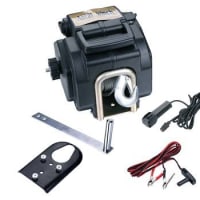What will you do if you made a hiring mistake? Finding a replacement for a bad hire can be time-consuming, drain energy, and it costs a lot for the company in many ways. Therefore, what are the tips and practices you can learn from your past bad hiring decisions?
Sometimes it happens that a candidate who had the right credentials seemed to fly through the interview process, and had lovely references turns out to be an unexpected problem after hiring. If you’ve been in this situation, you’ve had to face the dilemma of whether it’s worse to be stuck with an employee who can’t handle the work and is damaging to the team or to go public with the admission that you’ve made a significant mistake. Usually, in these situations, it’s less costly to make a change, and the sooner you make it, the better. Although coping with the impact of a bad hire will never be easy, following these steps will help you recover and move on with the least possible damage to all parties.
Prepare for a direct, and probably uncomfortable, conversation with the new hire. Rather than hoping for the best, or trying to deter a confrontation, leveling with the new hire about your dissatisfaction and their performance issues can open the way to joint problem-solving. By sharing your concerns and asking for their input, you may be able to discover workable alternatives, or at least understand how bad the situation truly is. You can start off with something like, “James, I want to talk about the last few weeks, and where we seem to be on track and where we need to make some adjustments.” Keep in mind that the new employee may recognize the same problems that you do and be grateful for the opportunity to clear the air and work on a solution together.
Try to repair the situation with focused feedback or reassignment. One of my clients hired a relatively junior staffer for his moxie, energy, and drive. Within just a few weeks, though, the new employee started broadcasting his concerns that the job was not as exciting or rewarding as he had expected, and he started making careless mistakes and goofing around with other employees. His manager gave him careful feedback on his behavior and asked lots of questions about why the job felt unsatisfying. Luckily, thanks to projected business growth and flexible organizational parameters, the manager was able to shift the new hire to another department and a more challenging job that suited his ambitions better. We developed an intensive training program to equip him for the new role and ensure a smooth transition.
Try to repair the situation with focused feedback or reassignment. One of my clients hired a relatively junior staffer for his moxie, energy, and drive. Within just a few weeks, though, the new employee started broadcasting his concerns that the job was not as exciting or rewarding as he had expected, and he started making careless mistakes and goofing around with other employees. His manager gave him careful feedback on his behavior and asked lots of questions about why the job felt unsatisfying. Luckily, thanks to projected business growth and flexible organizational parameters, the manager was able to shift the new hire to another department and a more challenging job that suited his ambitions better. We developed an intensive training program to equip him for the new role and ensure a smooth transition.
This doesn’t always work. At one client’s company, a new vice president who came from a different industry made numerous commitments to apply the feedback she was receiving, but she didn’t understand the business model and seemed either unable or unwilling to adapt her technical skills, so she was incapable of implementing the feedback accurately. Watch out for the escalation of commitment — many of us resist “giving up” on a tough situation. But if you’re giving the person lots of feedbacks, and you don’t see both significant personal effort almost immediately and actual improvements over the next three to six months, at some point you need to prepare to cut your losses.
Identify both the current and the future expense of keeping the bad hire. In some situations, the negative impact on other team members or the business makes it impractical to look for other internal opportunities or to invest in ongoing development. In one case, a senior executive who had previously worked for a very large public company joined my client, a midsize family-owned company, with such unrealistic expectations about resources and autonomous decision making that he cost the business dearly. Giving him feedback didn’t work, and moving him to another role wouldn’t have solved the problem.
In situations like these, the costs usually include reduced productivity or increased opportunity costs, employee disengagement and possible turnover, and increased interdepartmental conflict. Some clear indicators are missed deadlines or a decline in work quality. A less obvious sign is extra pre- and post-meeting meetings — often an attempt by colleagues to compensate for or work around an underperformer’s struggles. Compare those impacts with the cost of replacement and onboarding for a new candidate.
Company owners may think using a recruitment agency can cost huge money, however, this is not always true. Directly hire candidates may save the bucks at the beginning, but in the long run, you are investing your time and effort to hire candidates, and increases working hiring possibilities. Here are reasons why you should consider a Recruitment Agency:
Using recruitment agencies, you can reach out to maximum candidates, your job posts will be responded immediately.
Interviewing candidates requires a lot of effort, let recruitment agency make this tiring task for you, They will take care of the whole hiring Process for you. Just interview the pre-screened candidates best suitable for your job position. Hire only the best.
Every position and job duty is different, the same applies to the candidate's interviews. Talent Spot International has the rich talent pool and experienced consultants, we know how to reach your potential candidates and hire the best candidates for your hiring investment in a recruitment agency.
As a one-stop HR services company, Talent Spot International offers permanent and temporary job positions. Hiring the right candidates is not easy, you have to interview hundreds of Applicants. Manually verify their work and check whether they are fit to finish the project on time. The whole process is very time-consuming and risky. Talent Spot has different recruiting teams who focus on different industries. With your company need, Talent Spot always has a solution for you, and it limits hiring risks.
Talent Spot International is a one-stop HR service solutions company, get your free consultation if you need more information about Recruitment Services at Talent Spot International.
http://www.talent-spot.cn/page/staffing-service.html
Sometimes it happens that a candidate who had the right credentials seemed to fly through the interview process, and had lovely references turns out to be an unexpected problem after hiring. If you’ve been in this situation, you’ve had to face the dilemma of whether it’s worse to be stuck with an employee who can’t handle the work and is damaging to the team or to go public with the admission that you’ve made a significant mistake. Usually, in these situations, it’s less costly to make a change, and the sooner you make it, the better. Although coping with the impact of a bad hire will never be easy, following these steps will help you recover and move on with the least possible damage to all parties.
Prepare for a direct, and probably uncomfortable, conversation with the new hire. Rather than hoping for the best, or trying to deter a confrontation, leveling with the new hire about your dissatisfaction and their performance issues can open the way to joint problem-solving. By sharing your concerns and asking for their input, you may be able to discover workable alternatives, or at least understand how bad the situation truly is. You can start off with something like, “James, I want to talk about the last few weeks, and where we seem to be on track and where we need to make some adjustments.” Keep in mind that the new employee may recognize the same problems that you do and be grateful for the opportunity to clear the air and work on a solution together.
Try to repair the situation with focused feedback or reassignment. One of my clients hired a relatively junior staffer for his moxie, energy, and drive. Within just a few weeks, though, the new employee started broadcasting his concerns that the job was not as exciting or rewarding as he had expected, and he started making careless mistakes and goofing around with other employees. His manager gave him careful feedback on his behavior and asked lots of questions about why the job felt unsatisfying. Luckily, thanks to projected business growth and flexible organizational parameters, the manager was able to shift the new hire to another department and a more challenging job that suited his ambitions better. We developed an intensive training program to equip him for the new role and ensure a smooth transition.
Try to repair the situation with focused feedback or reassignment. One of my clients hired a relatively junior staffer for his moxie, energy, and drive. Within just a few weeks, though, the new employee started broadcasting his concerns that the job was not as exciting or rewarding as he had expected, and he started making careless mistakes and goofing around with other employees. His manager gave him careful feedback on his behavior and asked lots of questions about why the job felt unsatisfying. Luckily, thanks to projected business growth and flexible organizational parameters, the manager was able to shift the new hire to another department and a more challenging job that suited his ambitions better. We developed an intensive training program to equip him for the new role and ensure a smooth transition.
This doesn’t always work. At one client’s company, a new vice president who came from a different industry made numerous commitments to apply the feedback she was receiving, but she didn’t understand the business model and seemed either unable or unwilling to adapt her technical skills, so she was incapable of implementing the feedback accurately. Watch out for the escalation of commitment — many of us resist “giving up” on a tough situation. But if you’re giving the person lots of feedbacks, and you don’t see both significant personal effort almost immediately and actual improvements over the next three to six months, at some point you need to prepare to cut your losses.
Identify both the current and the future expense of keeping the bad hire. In some situations, the negative impact on other team members or the business makes it impractical to look for other internal opportunities or to invest in ongoing development. In one case, a senior executive who had previously worked for a very large public company joined my client, a midsize family-owned company, with such unrealistic expectations about resources and autonomous decision making that he cost the business dearly. Giving him feedback didn’t work, and moving him to another role wouldn’t have solved the problem.
In situations like these, the costs usually include reduced productivity or increased opportunity costs, employee disengagement and possible turnover, and increased interdepartmental conflict. Some clear indicators are missed deadlines or a decline in work quality. A less obvious sign is extra pre- and post-meeting meetings — often an attempt by colleagues to compensate for or work around an underperformer’s struggles. Compare those impacts with the cost of replacement and onboarding for a new candidate.
Company owners may think using a recruitment agency can cost huge money, however, this is not always true. Directly hire candidates may save the bucks at the beginning, but in the long run, you are investing your time and effort to hire candidates, and increases working hiring possibilities. Here are reasons why you should consider a Recruitment Agency:
Using recruitment agencies, you can reach out to maximum candidates, your job posts will be responded immediately.
Interviewing candidates requires a lot of effort, let recruitment agency make this tiring task for you, They will take care of the whole hiring Process for you. Just interview the pre-screened candidates best suitable for your job position. Hire only the best.
Every position and job duty is different, the same applies to the candidate's interviews. Talent Spot International has the rich talent pool and experienced consultants, we know how to reach your potential candidates and hire the best candidates for your hiring investment in a recruitment agency.
As a one-stop HR services company, Talent Spot International offers permanent and temporary job positions. Hiring the right candidates is not easy, you have to interview hundreds of Applicants. Manually verify their work and check whether they are fit to finish the project on time. The whole process is very time-consuming and risky. Talent Spot has different recruiting teams who focus on different industries. With your company need, Talent Spot always has a solution for you, and it limits hiring risks.
Talent Spot International is a one-stop HR service solutions company, get your free consultation if you need more information about Recruitment Services at Talent Spot International.
http://www.talent-spot.cn/page/staffing-service.html



















※コメント投稿者のブログIDはブログ作成者のみに通知されます